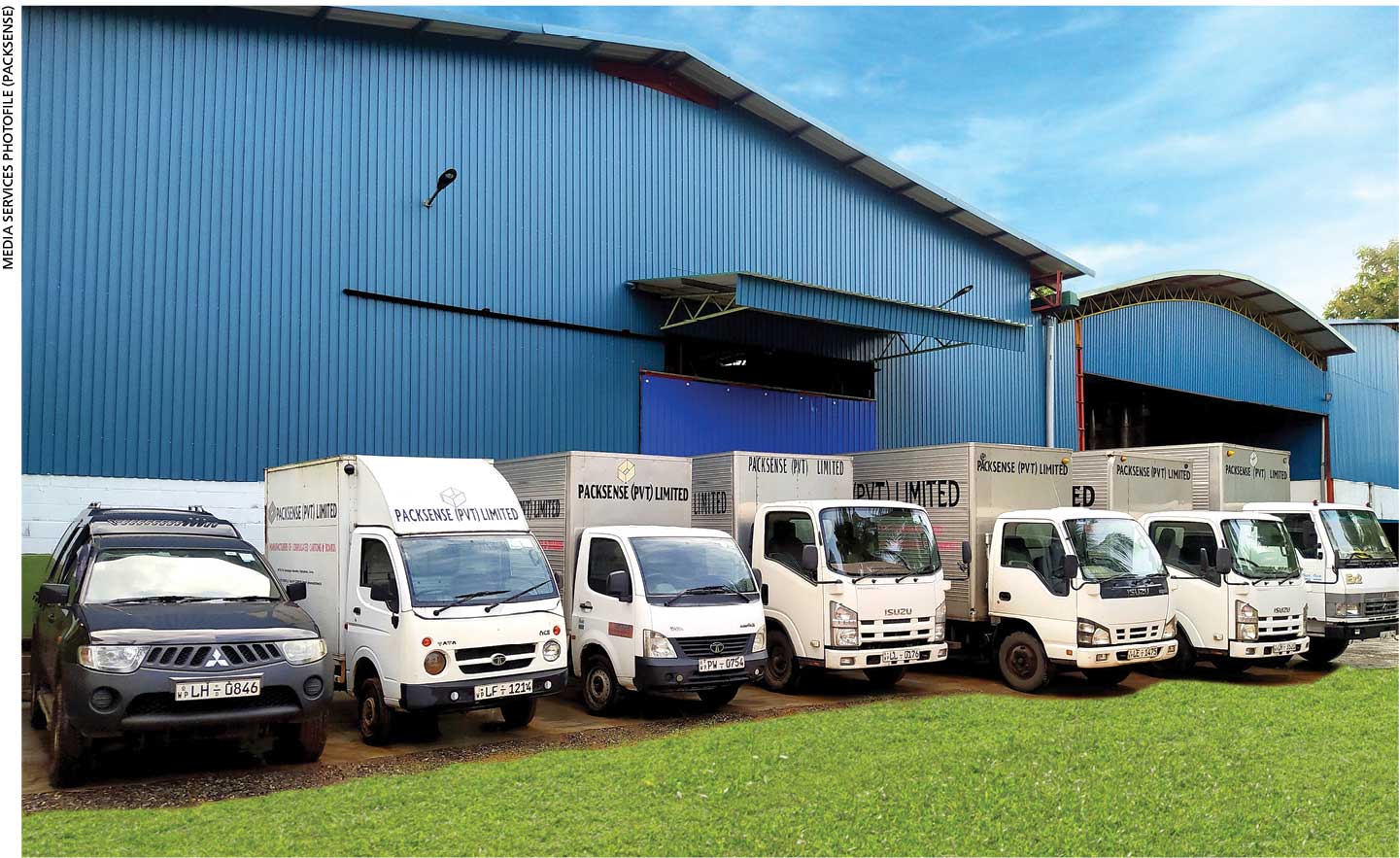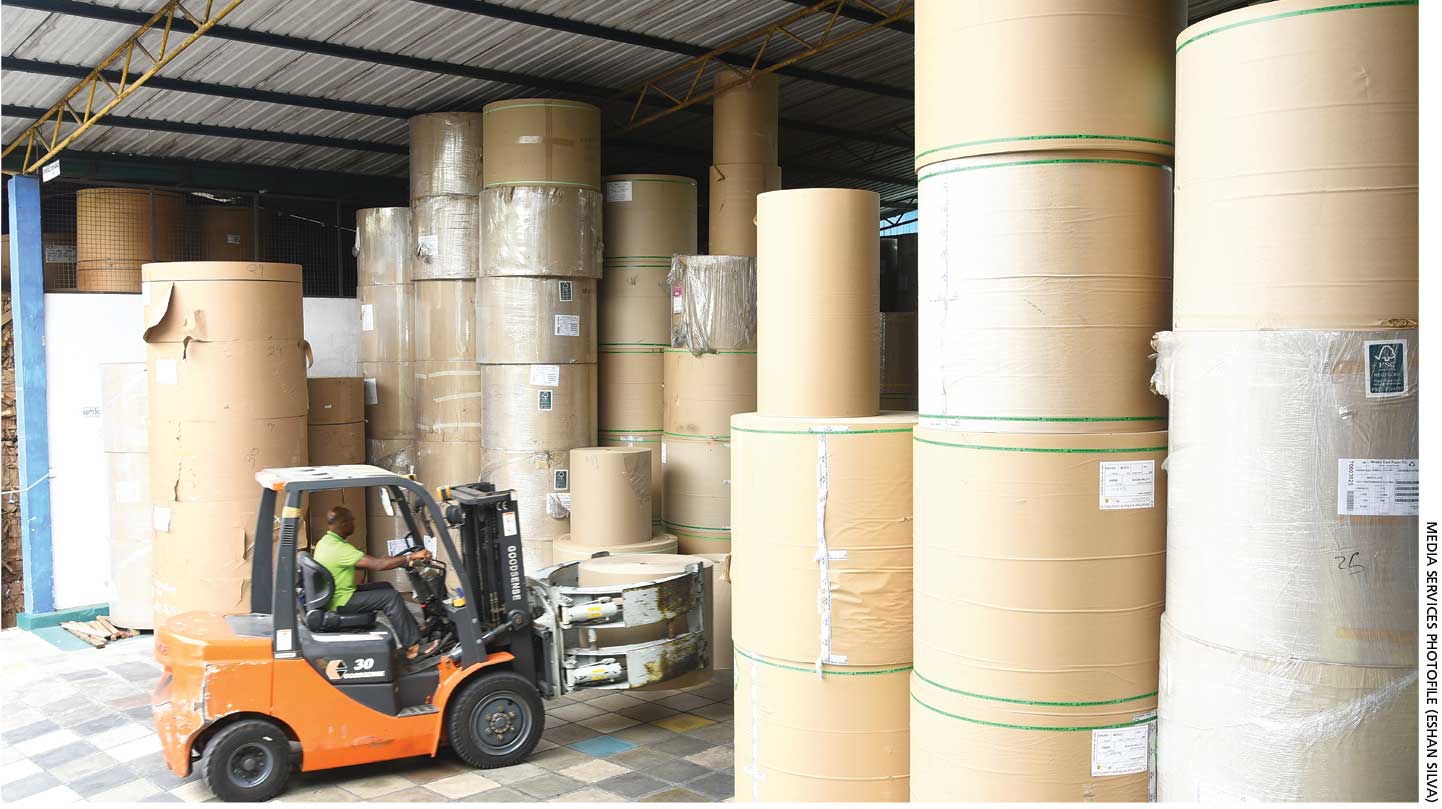PACKSENSE
Q: What is your view of the capabilities of Sri Lanka’s workforce and do they have the capacity to pursue entrepreneurship?
 A: A person must be well-rounded in terms of knowledge regarding the evolving business landscape if he or she aims to become an entrepreneur.
A: A person must be well-rounded in terms of knowledge regarding the evolving business landscape if he or she aims to become an entrepreneur.
A shortcoming that I have noticed in the Sri Lankan context is a certain reluctance to take risks. Job security is considered to be the primary focus and this tends to inculcate fear among individuals, which leads to hesitation when it comes to stepping out of their comfort zones to do something different.
People generally latch on to a single job and remain stagnant, performing the same role until they retire. Additional efforts to upgrade skills and competencies are rare sights to behold.
Such individuals run the risk of being complacent unless necessary measures are taken to improve their perception and outlook regarding their own capabilities. Once this is realised, the opportunities on offer would be endless.
Q: How does Packsense look to support entrepreneurs against this backdrop?
A: I believe that the organisational culture of Packsense doesn’t hold back its employees from achieving their true potential. As an employer, I’ve made an effort to provide our staff with the necessary training in both local and foreign facilities.
Annual visits to other countries are organised and staff members enjoy exposure to industrial knowledge from the perspective of global personalities.
Job specialisation can undermine people’s career progress and being confined to one walk of life prevents new entrepreneurs coming to the fore. People need to have the grit and courage to work long hours and engage in a journey of constant learning if they’re looking to achieve success.
Sri Lanka produces around 15,000 graduates through the local education system, of which only two percent eventually go on to become entrepreneurs. Our country never falls short when it comes to education. The availability of support systems that help these graduates experience success however, leaves much to be desired.
Packsense does not have the traditional glass ceiling that suppresses talent and keeps them from moving forward. For example, the company’s previous sales manager – after years of relentless efforts to earn educational qualifications and gain work experience – took the leap of faith and has become an entrepreneur overlooking a promising business venture.
Q: Do you believe the prevailing business climate is conducive to entrepreneurship?
A: In my opinion, the local business climate does not generally provide incentives to launch business ventures. The manufacturing industry in particular finds it difficult to thrive because of macroeconomic factors – viz. inflation, import restrictions, scarcity of raw materials and so on.
A consistent policy framework – without ad hoc changes – would contribute to introducing the desired change.
 Q: How would you describe the competition in the corrugated box manufacturing sector – and what strategies do you employ to stay ahead?
Q: How would you describe the competition in the corrugated box manufacturing sector – and what strategies do you employ to stay ahead?
A: The marketplace should promote friendly competition. A monopoly market does not facilitate innovation given the fact that consumers have no alternative but to depend on a sole producer.
When it comes to a free and competitive marketplace, players motivate each other to become better, ensuring that consumers have access to better quality and more convenience.
Packsense is committed to making the necessary investments in various aspects such as training, R&D and innovation to ensure that customers enjoy substantial value additions.
Q: What do you consider to be the main challenges that companies such as Packsense have to overcome?
A: The COVID-19 pandemic broke out at the worst possible time for the corrugated box manufacturing sector.
Corrugated boxes are paper-based products and presently, the global market does not favour the sector since the price of paper in the market has doubled over the past six months. Given the fact that around 90 percent of raw materials are imported, it’s evident that there is a severe shortage in the market.
 Vessel movements have slowed significantly due to disruptions in logistics and delays in shipments have become a regular occurrence. The aftereffects of these delays are felt by every business in the sector and it has been an ongoing inconvenience that’s prevailed since the fourth quarter of last year.
Vessel movements have slowed significantly due to disruptions in logistics and delays in shipments have become a regular occurrence. The aftereffects of these delays are felt by every business in the sector and it has been an ongoing inconvenience that’s prevailed since the fourth quarter of last year.
Furthermore, there is a major shortage of labour in the industrial sector with the current generation being somewhat unaware of the opportunities that it offers. With adequate training and resilience, people have the ability to earn substantial revenues.
Q: Could you outline the organisation’s plans going forward?
A: My aim is to invest in automation to boost the company’s productivity and efficiency.
Packsense commenced by operating basic machinery manufactured in India. The company opted for an upgrade by purchasing new state-of-the-art machinery from China in 2013. I intend to introduce more machinery and technology as the years go by.
The corrugated boxes currently produced by Packsense are five layered. I have a strong feeling that this could be converted into a seven layered corrugated manufacturing plant in the next three years.
Wasantha Kumara
Chairman
Managing Director
Telephone 2247958 | Email pksense@slt.net | Website www.packsense.lk



